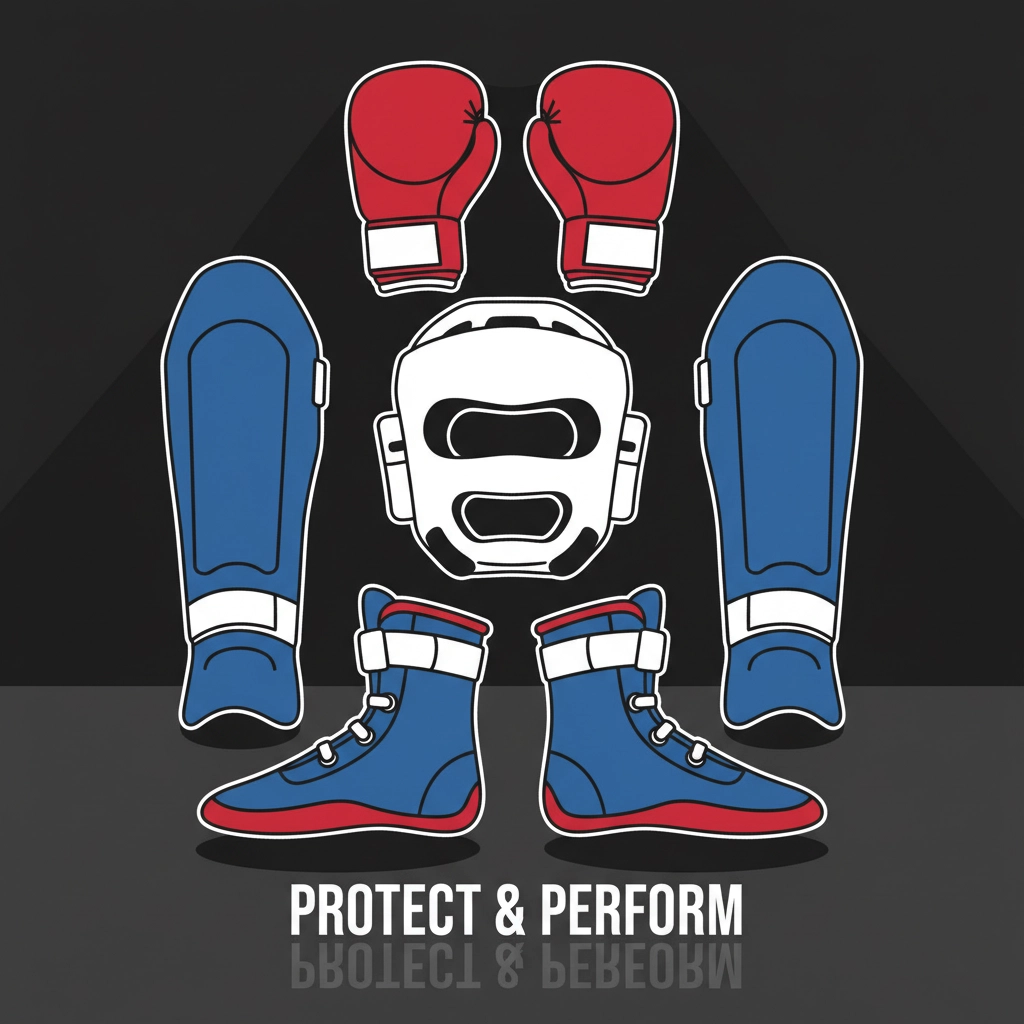Hey everyone! Tournament season is here, and whether you're stepping into your first competition or you're a seasoned competitor looking to level up your game, proper preparation makes all the difference. Let's break down everything you need to know to walk into that tournament feeling confident and ready to perform your best.
Start with Your Physical Foundation
Your body is your most important piece of equipment, so let's make sure it's competition-ready. Physical preparation isn't just about being in good shape: it's about building the specific strength, flexibility, and endurance that tournaments demand.
Strength and Conditioning: Focus on functional movements that mirror your martial art. If you're a striker, explosive power in your legs and core stability are crucial. Grapplers need grip strength and full-body endurance. Don't neglect your cardio either: tournaments are mentally and physically draining, and you need to maintain peak performance throughout multiple matches.
Flexibility and Mobility: Tight muscles lead to injuries and poor performance. Dedicate time daily to stretching and mobility work, especially in areas specific to your art. High kicks, ground transitions, and defensive movements all require a good range of motion.
Injury Prevention: This is huge. A minor injury during training can derail months of preparation. Listen to your body, warm up properly, and don't train through pain. Recovery days aren't lazy days: they're bright days.

Mental Game: Your Secret Weapon
Here's something many martial artists overlook: tournaments are won and lost in your head as much as on the mat or in the ring. Mental preparation separates good competitors from great ones.
Visualization: Spend time each day visualizing successful performances. See yourself executing techniques perfectly, staying calm under pressure, and adapting when things don't go as planned. Your brain doesn't know the difference between a vividly imagined experience and a real one.
Pressure Training: Practice under pressure before you compete. Have training partners create distractions, train when you're tired, or set up scenarios where you're behind on points. The more comfortable you are with discomfort, the better you'll perform when it counts.
Develop Your Competition Mindset: Tournaments aren't the time to try new techniques or overthink your game plan. Stick to what you know works and trust your training. Confidence comes from preparation, not hope.
Gear Up: Equipment That Performs When You Do
Your equipment can make or break your tournament experience. Quality gear protects you and gives you the confidence to perform at your best.
Essential Protection: Don't skimp on protective gear. Quality sparring gloves, reliable shin guards, and proper headgear aren't just safety requirements; they are also performance enhancers. When you know you're well-protected, you can fight with confidence.
Footwork Advantage: Your feet are your foundation. Quality sparring boots offer the grip and support you need, while still allowing for quick movements and kicks. Don't underestimate how much proper footwear can impact your performance.
Complete Protection: Consider forearm guards if your competition allows them. Every piece of protection will enable you to train and compete with greater confidence.
Backup Everything: Always have backup gear. Straps break, foam compresses, and accidents happen. Pack an extra mouthguard, spare hand wraps, and any small items that could leave you scrambling if lost or damaged.

Technique Refinement: Quality Over Quantity
As your tournament approaches, shift your training focus from learning new techniques to perfecting your core arsenal.
Master Your Fundamentals: Your basic techniques should be flawless. These are your go-to moves under pressure, so drill them until they're automatic. A perfectly executed basic technique beats a sloppy advanced one every time.
Develop Your Game Plan: Know your strengths and how to implement them against different opponent types. If you're a counter-fighter, practice drawing attacks. If you prefer pressure, work on maintaining pace without gassing out.
Study Your Competition: Watch videos of opponents you might face. Understanding their tendencies gives you a tactical advantage, but don't get so focused on game-planning that you forget to impose your own style.
Strategic Preparation and Course Management
Every tournament has its own rhythm and challenges. Thoughtful preparation means understanding these factors and planning accordingly.
Know the Rules: This sounds obvious, but rule variations between organizations can trip you up. Point systems, time limits, equipment requirements, and legal techniques can all vary. Study the specific rules for your tournament.
Bracket Strategy: Understand the tournament format. Are you fighting multiple matches in one day? Is it single elimination or round-robin? Your energy management and tactical approach will vary based on the format.
Weight Management: If you need to lose weight, do it smart and safely. Crash diets and extreme dehydration can harm performance more than they benefit it. Plan your weight cut well in advance and consider working with someone experienced in healthy weight management.

Nutrition and Recovery: Fuel for Excellence
Your body is a high-performance machine, and what you put in directly affects what you get out.
Pre-Competition Nutrition: Eat familiar foods in the days leading up to competition. Tournament day isn't the time to experiment with new supplements or foods that might upset your stomach.
Hydration: Start hydrating well before your matches. During competition, sip water regularly rather than chugging large amounts at once. If you're competing in multiple matches, consider electrolyte replacement, but again, stick to products you've used before.
Sleep: This is non-negotiable. Quality sleep in the weeks leading up to competition is crucial for recovery, learning retention, and stress management. Aim for 7-9 hours nightly, and maintain consistent sleep and wake times.
Day-of Competition Strategy
Tournament day has arrived. All your preparation comes down to this.
Arrive Early: Give yourself plenty of time to register, warm up, and acclimate to the venue. Rushing creates unnecessary stress and prevents proper preparation.
Warm-Up Smart: Your warm-up should mirror your training routine but be appropriate for the venue and time constraints. Get your body ready without exhausting yourself before you compete.
Stay Focused Between Matches: If you have multiple matches, manage your energy between them. Stay warm, stay hydrated, and keep your mind engaged but relaxed.
Embrace the Nerves: Pre-competition butterflies are normal and can actually enhance performance if you channel them correctly. Deep breathing, positive self-talk, and remembering your preparation can help transform anxiety into excitement.
Learning and Growing
Win or lose, every tournament is a learning opportunity.
Reflect and Analyze: After completing, honestly assess your performance. What worked? What didn't? What would you do differently? This reflection is crucial for continued improvement.
Celebrate Effort: Results matter, but effort and improvement matter more. If you prepared well and gave your best, that's success, regardless of whether you win medals or trophies.
Plan Forward: Use what you learned to inform your next training cycle. Every tournament makes you better if you approach it with the right mindset.
Tournament success isn't about luck or natural talent: it's about systematic preparation and brilliant execution. Train hard, prepare thoroughly, and trust in your preparation when it's time to compete. You've got this!
Remember, we're here to support your journey. Whether you need quality training programs or reliable gear, we're in your corner every step of the way.

